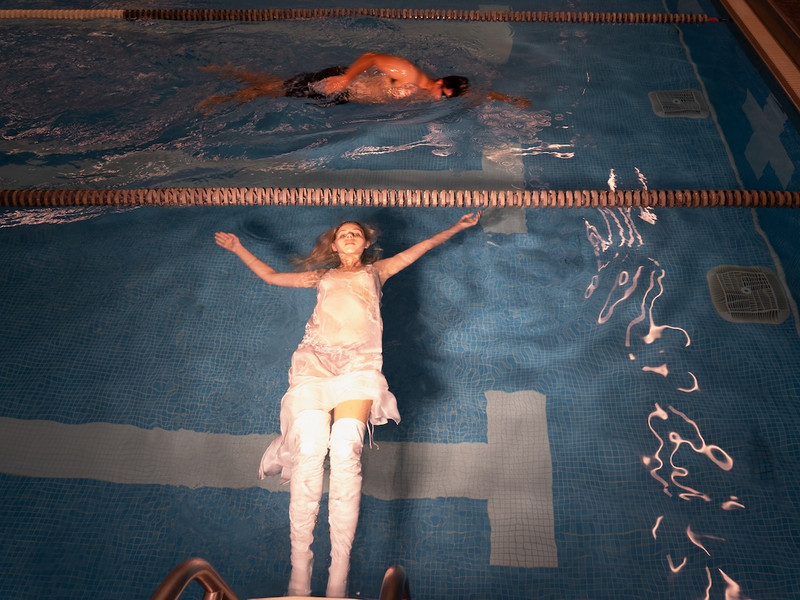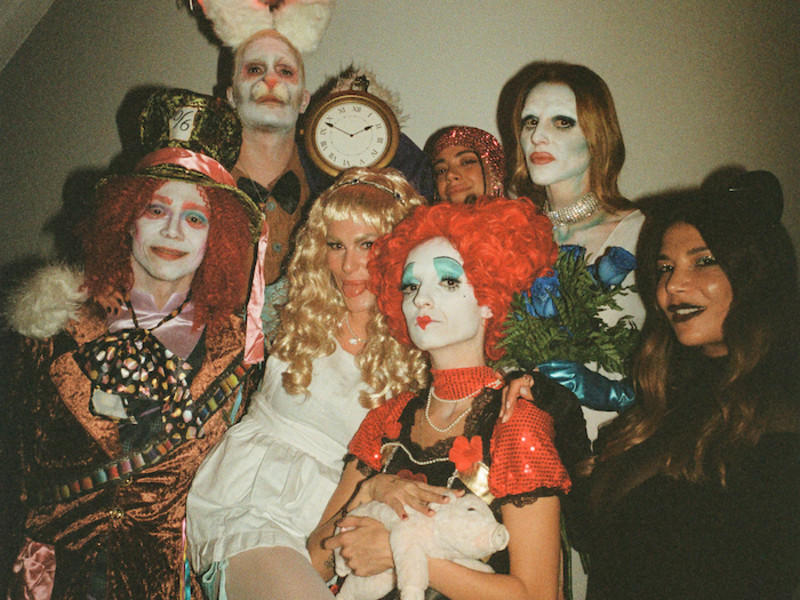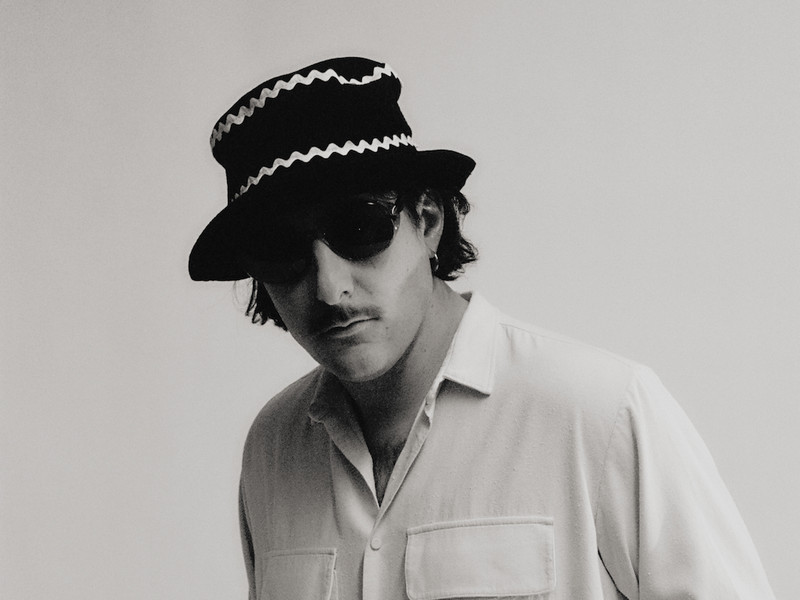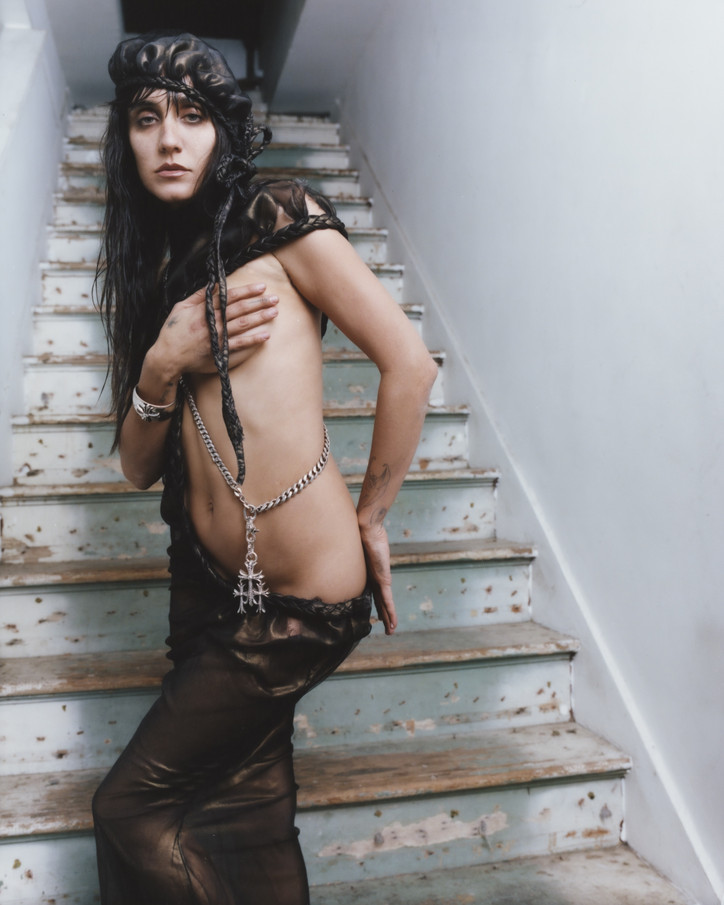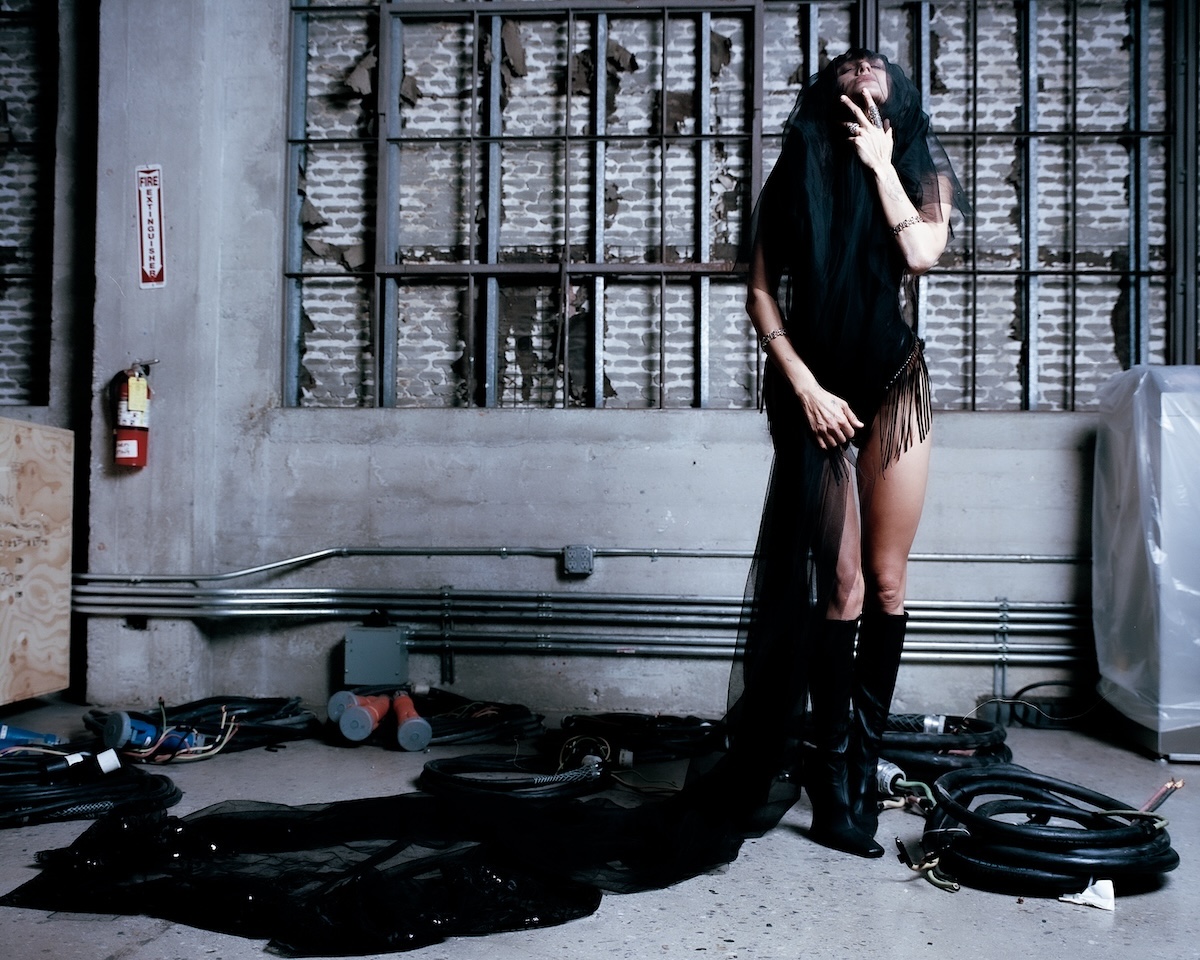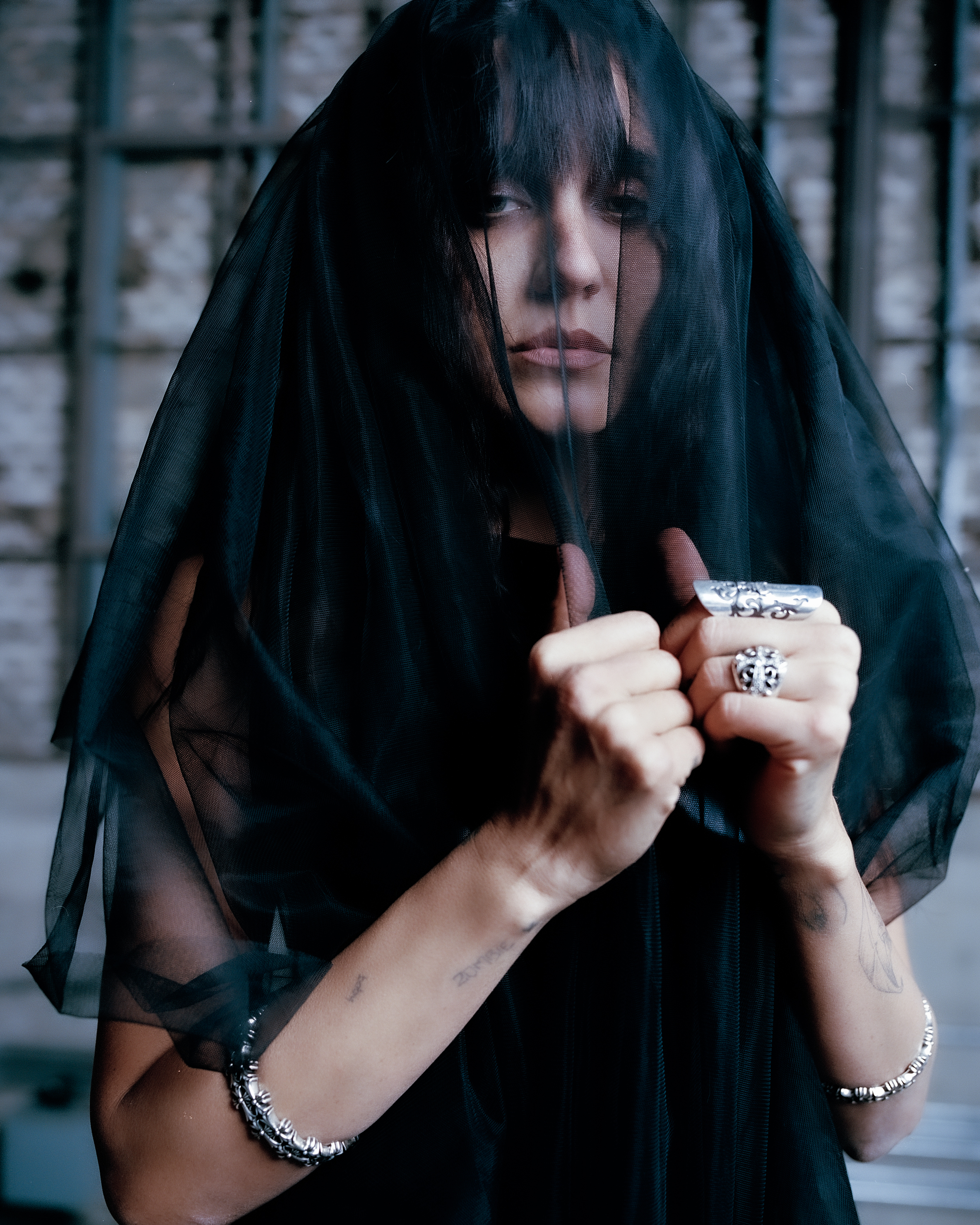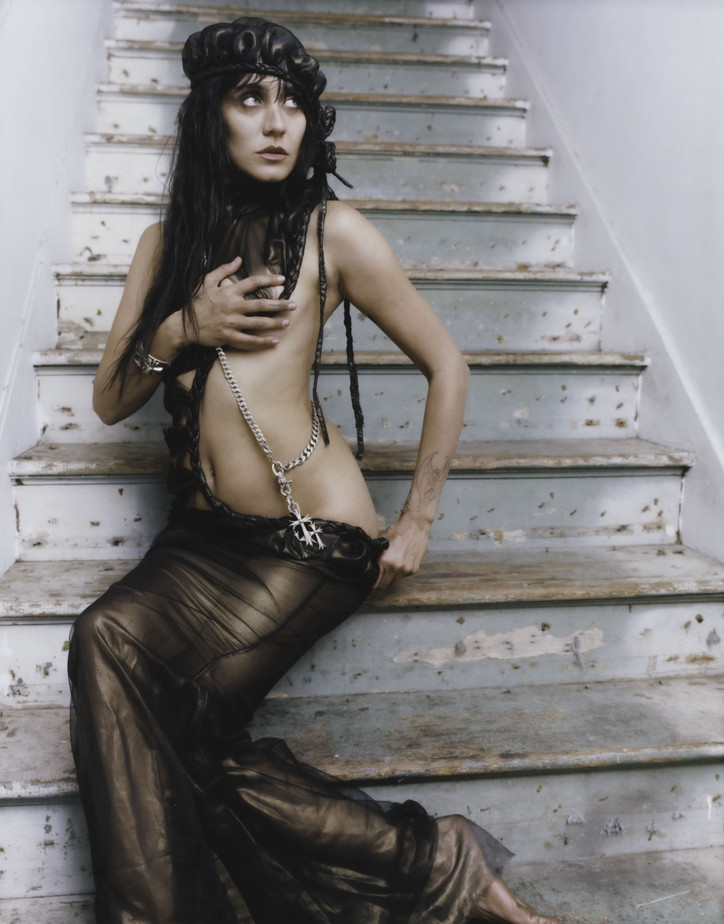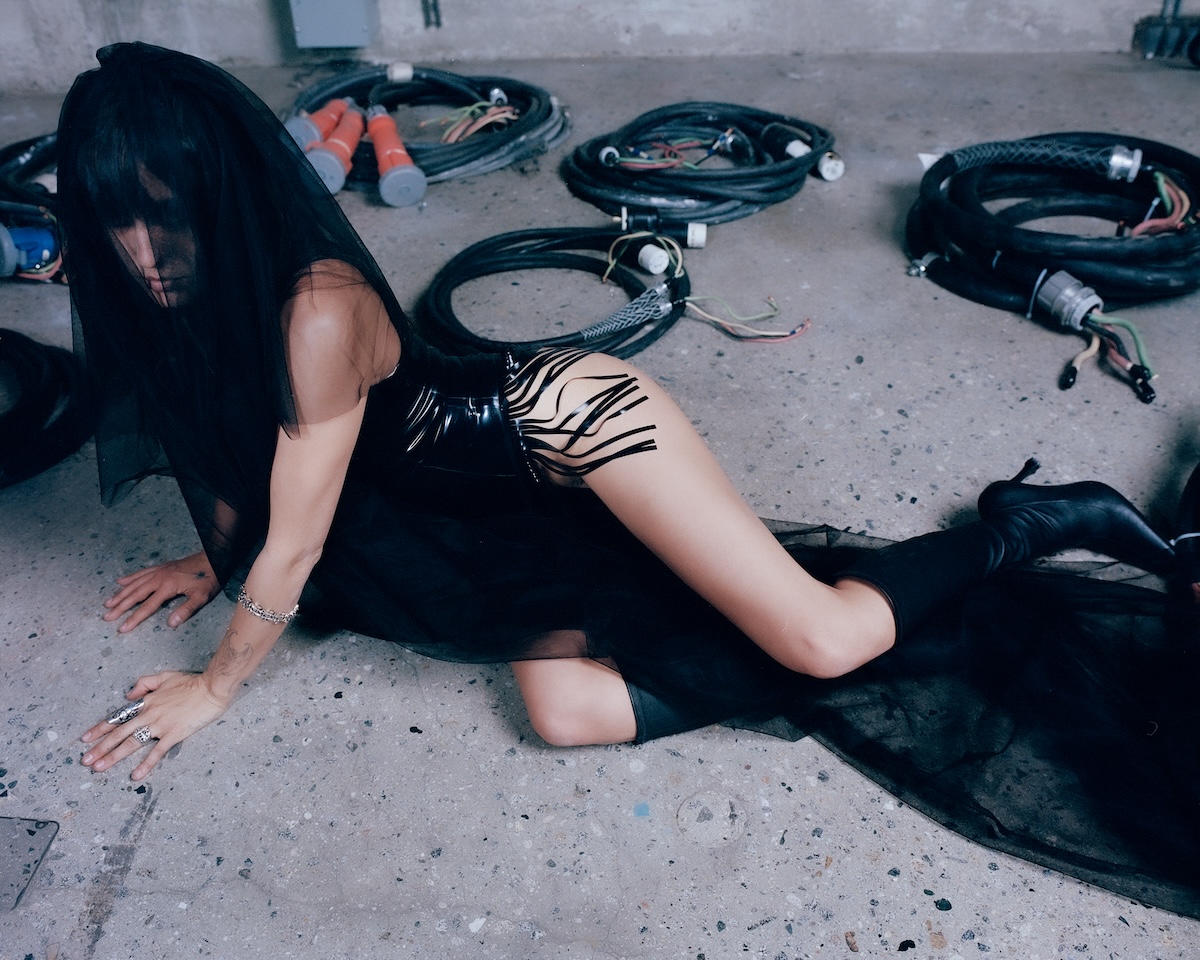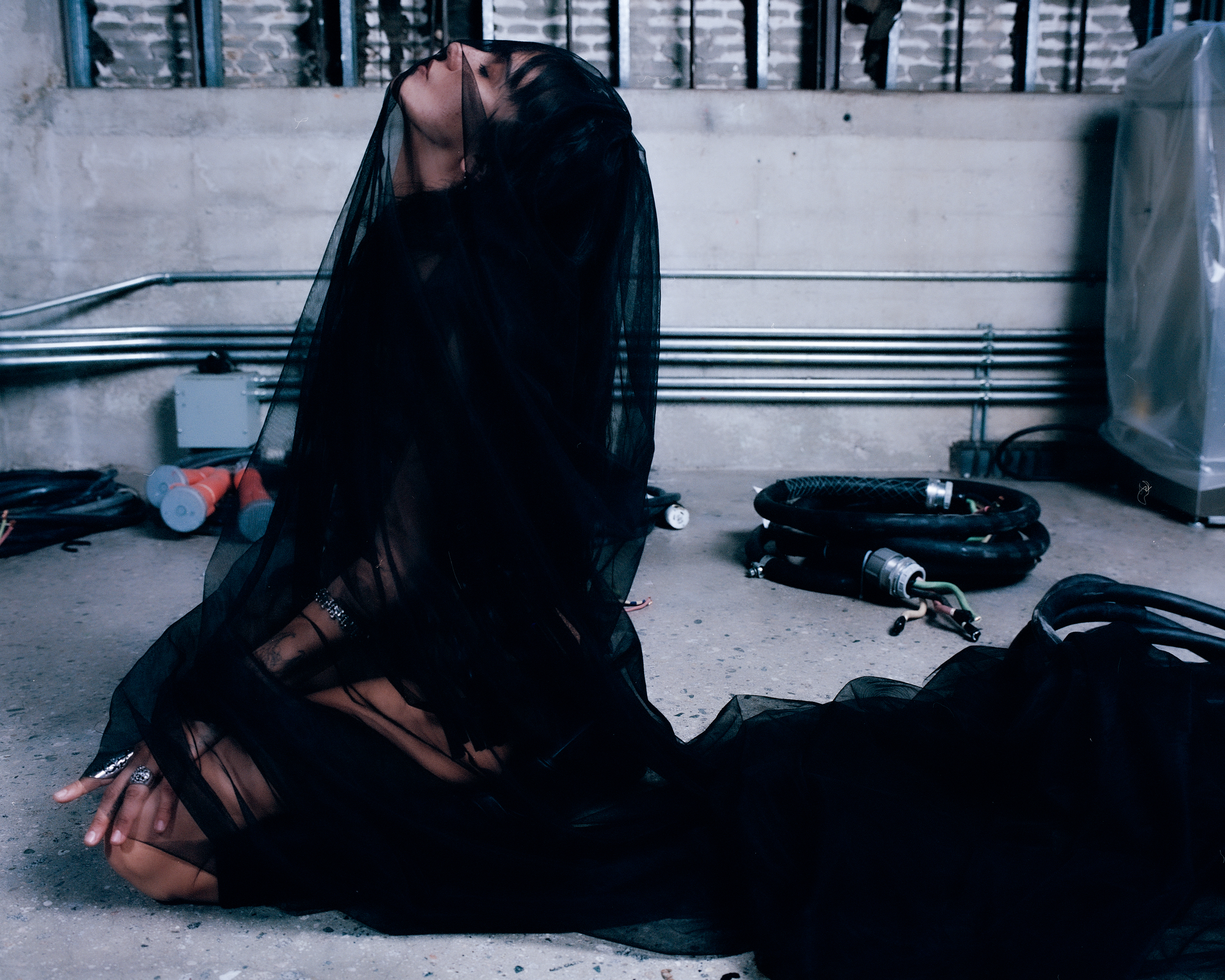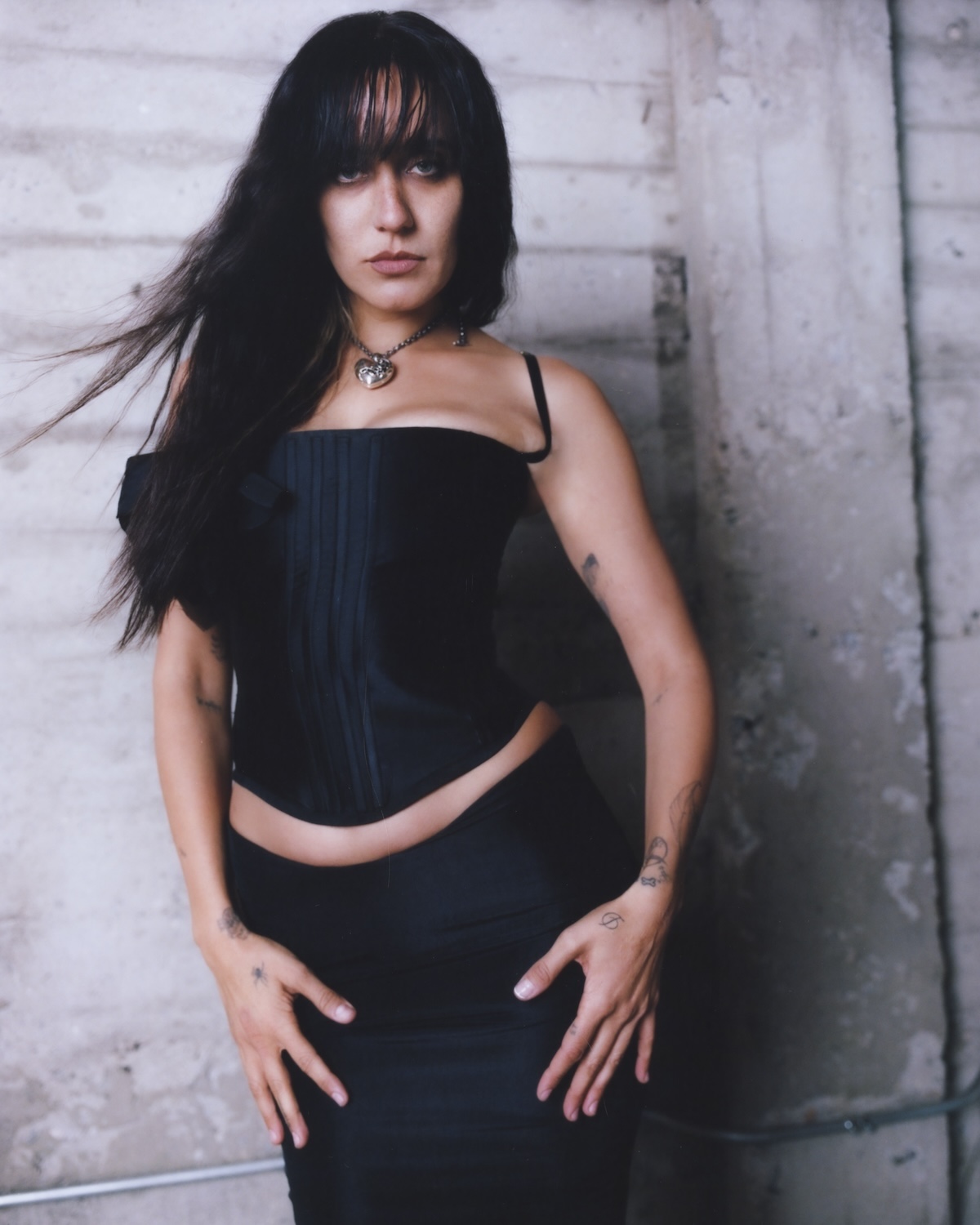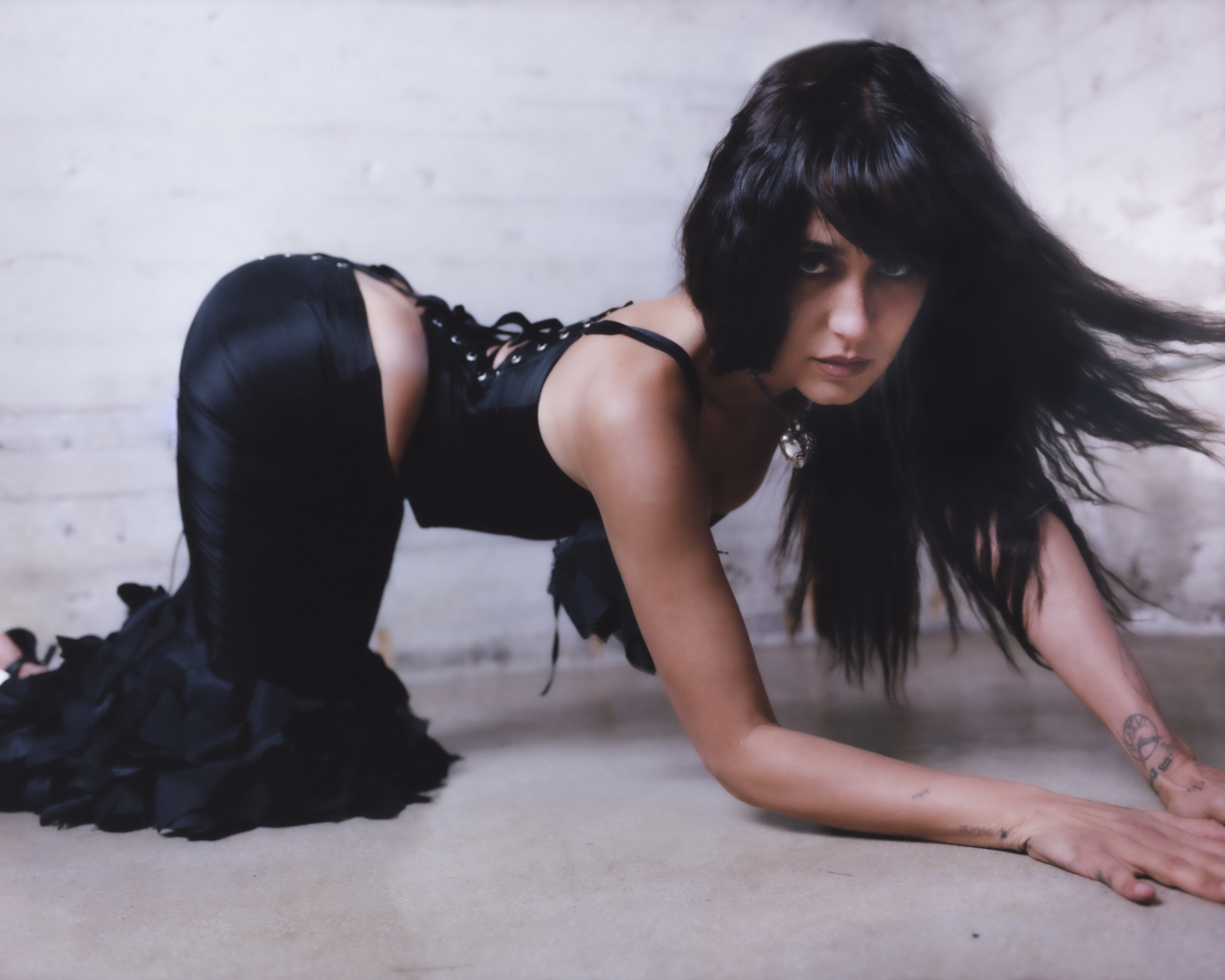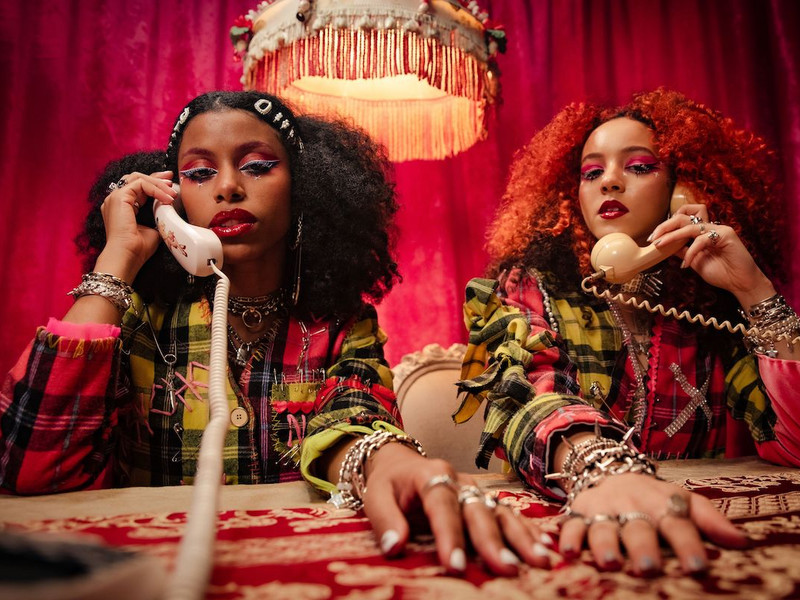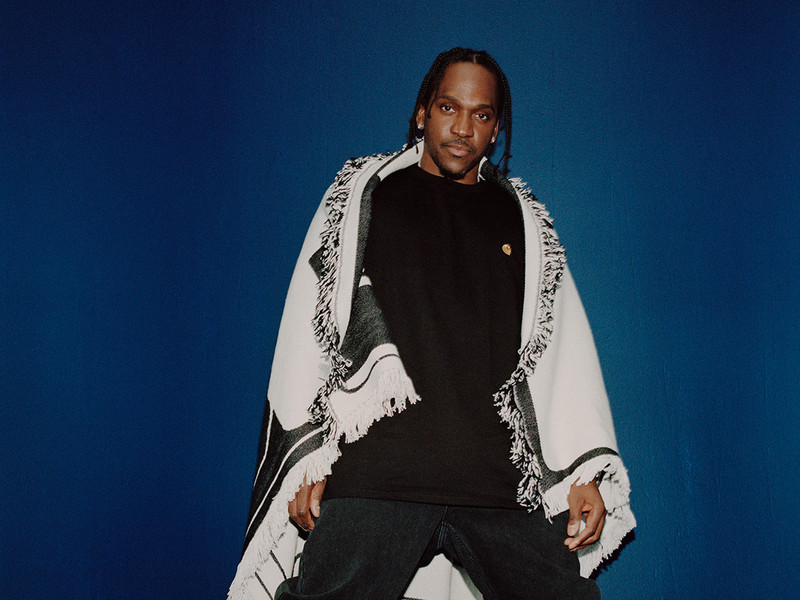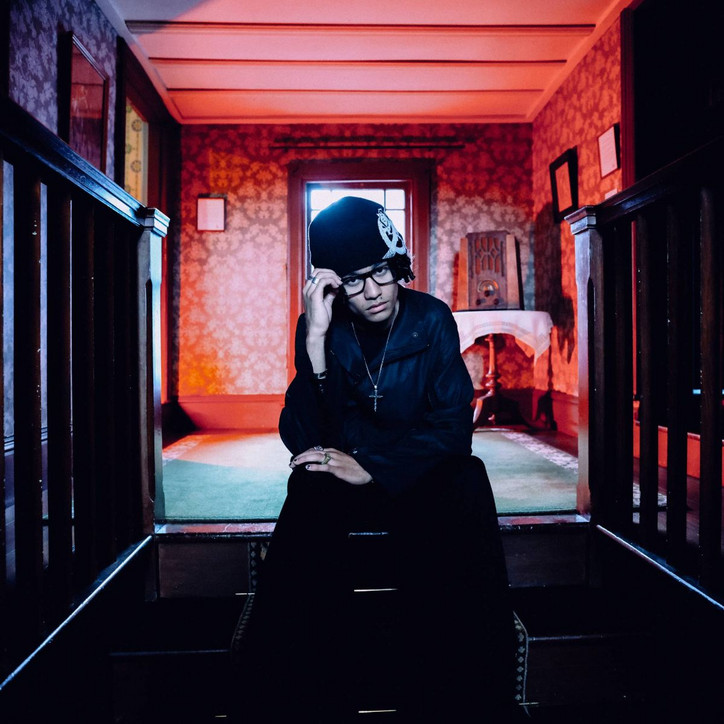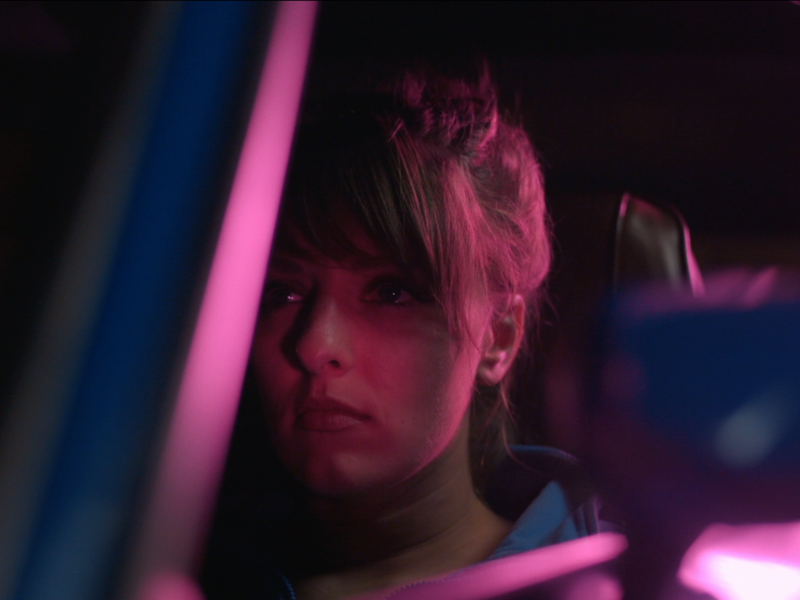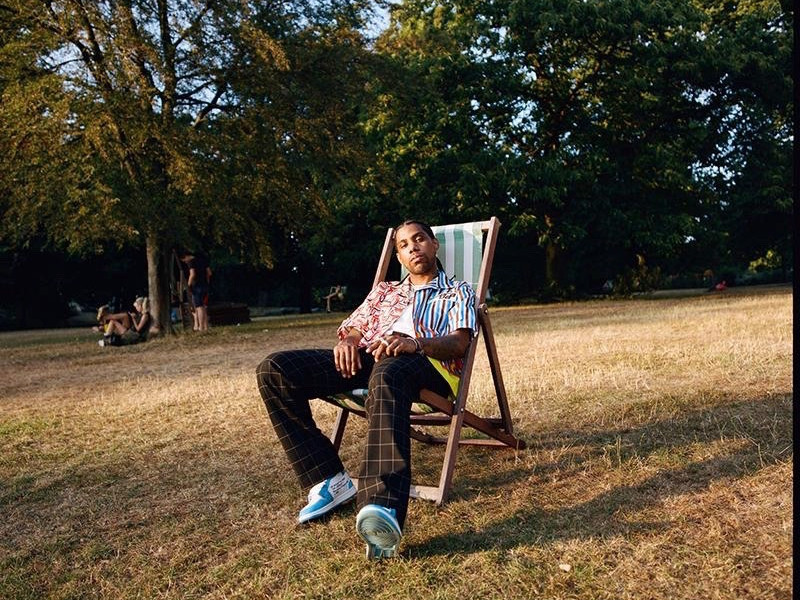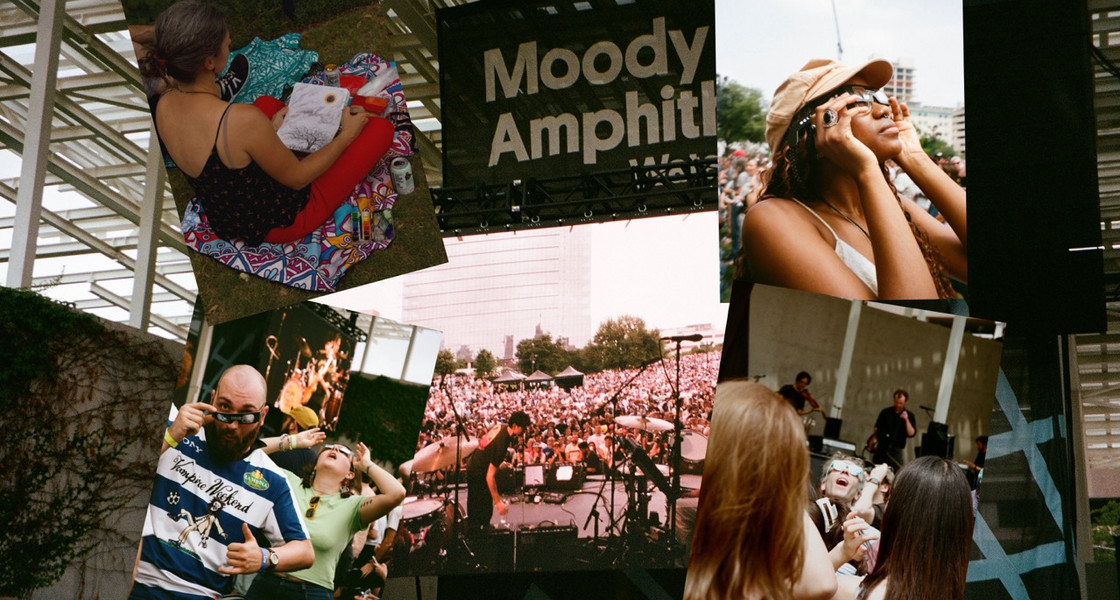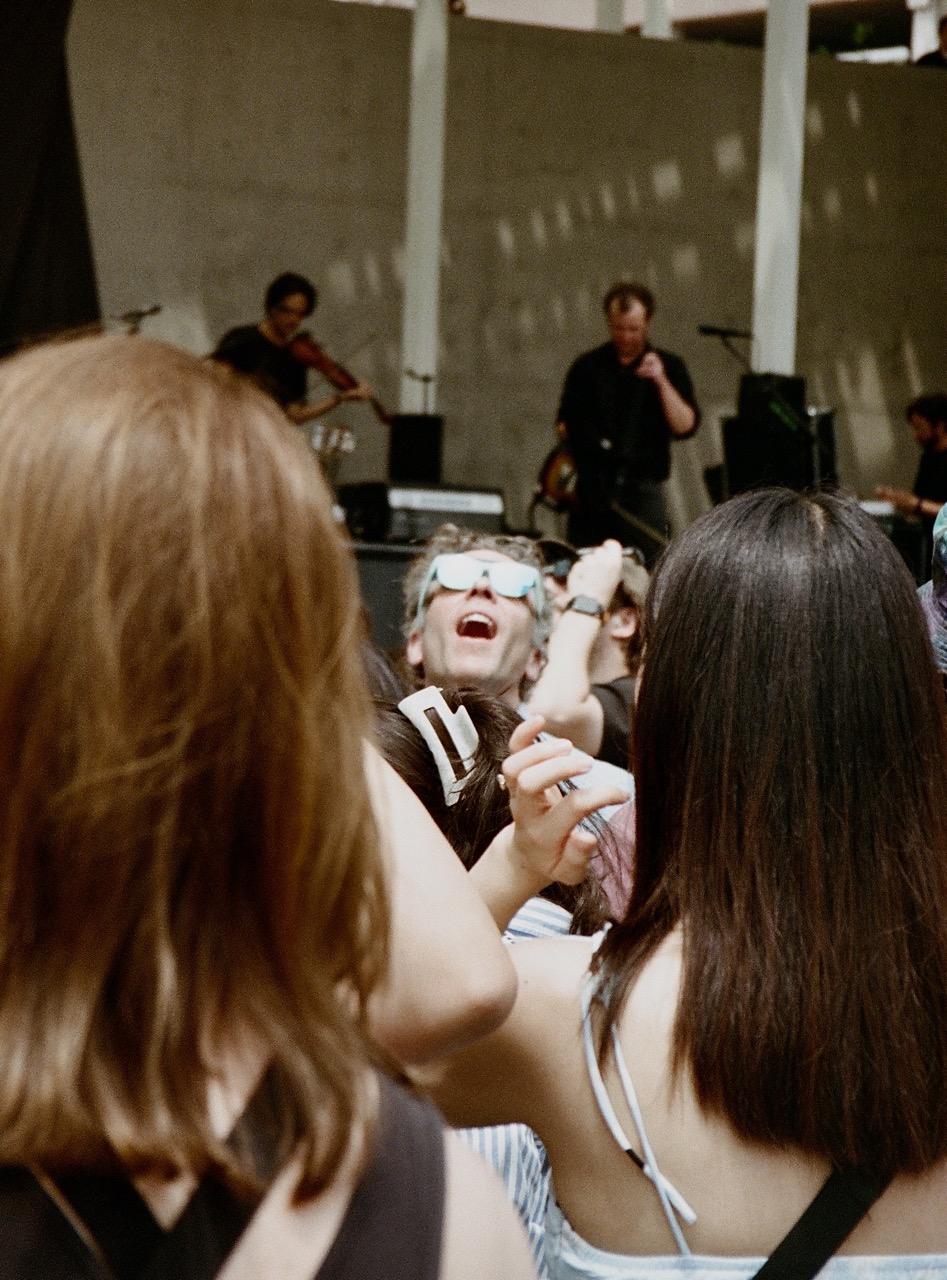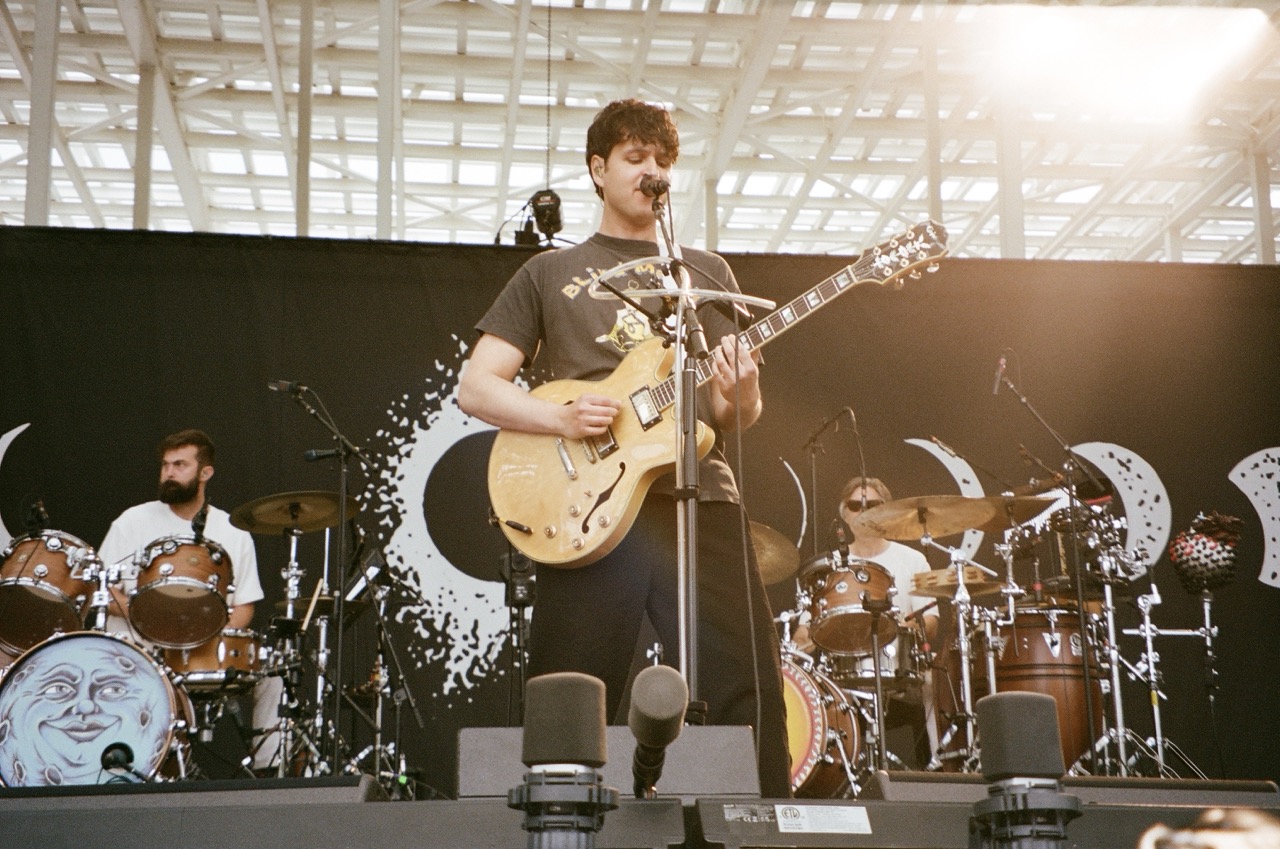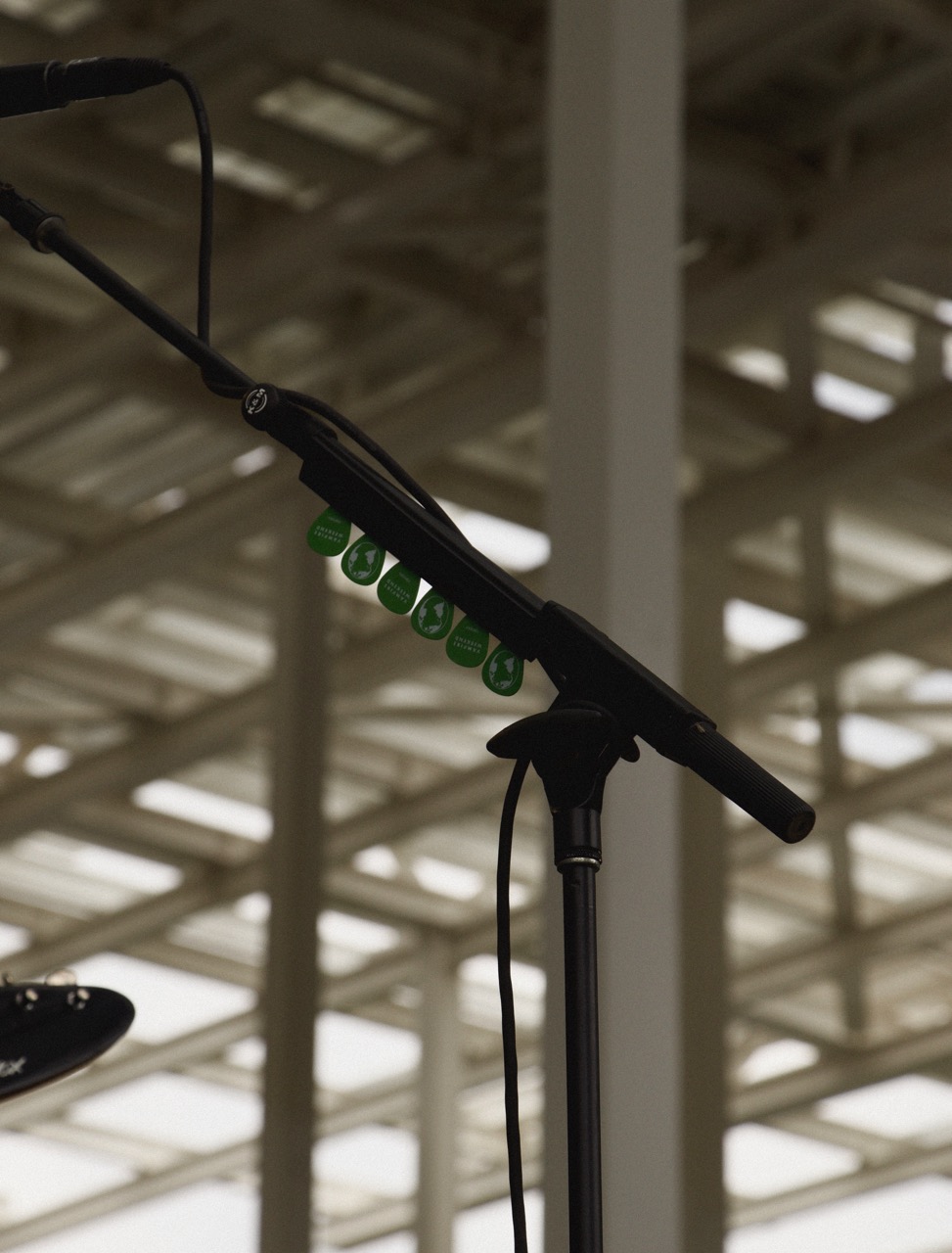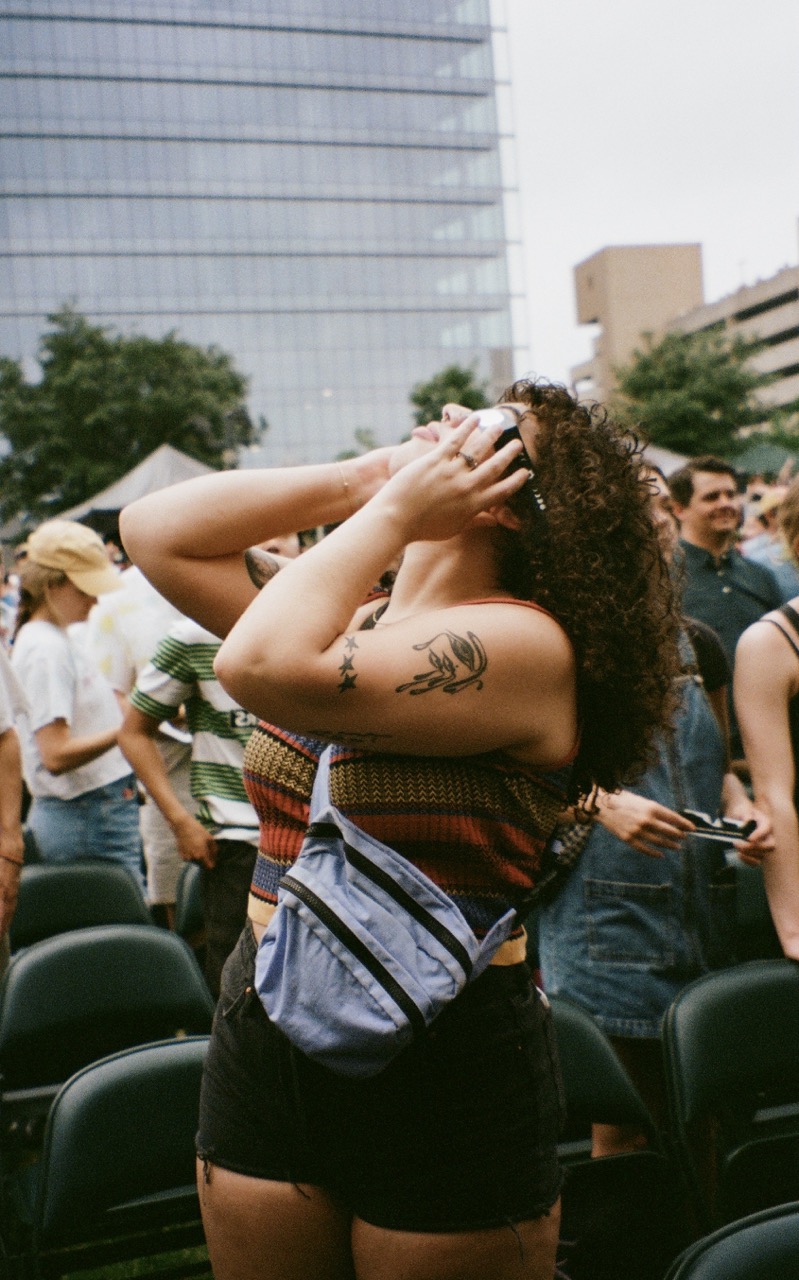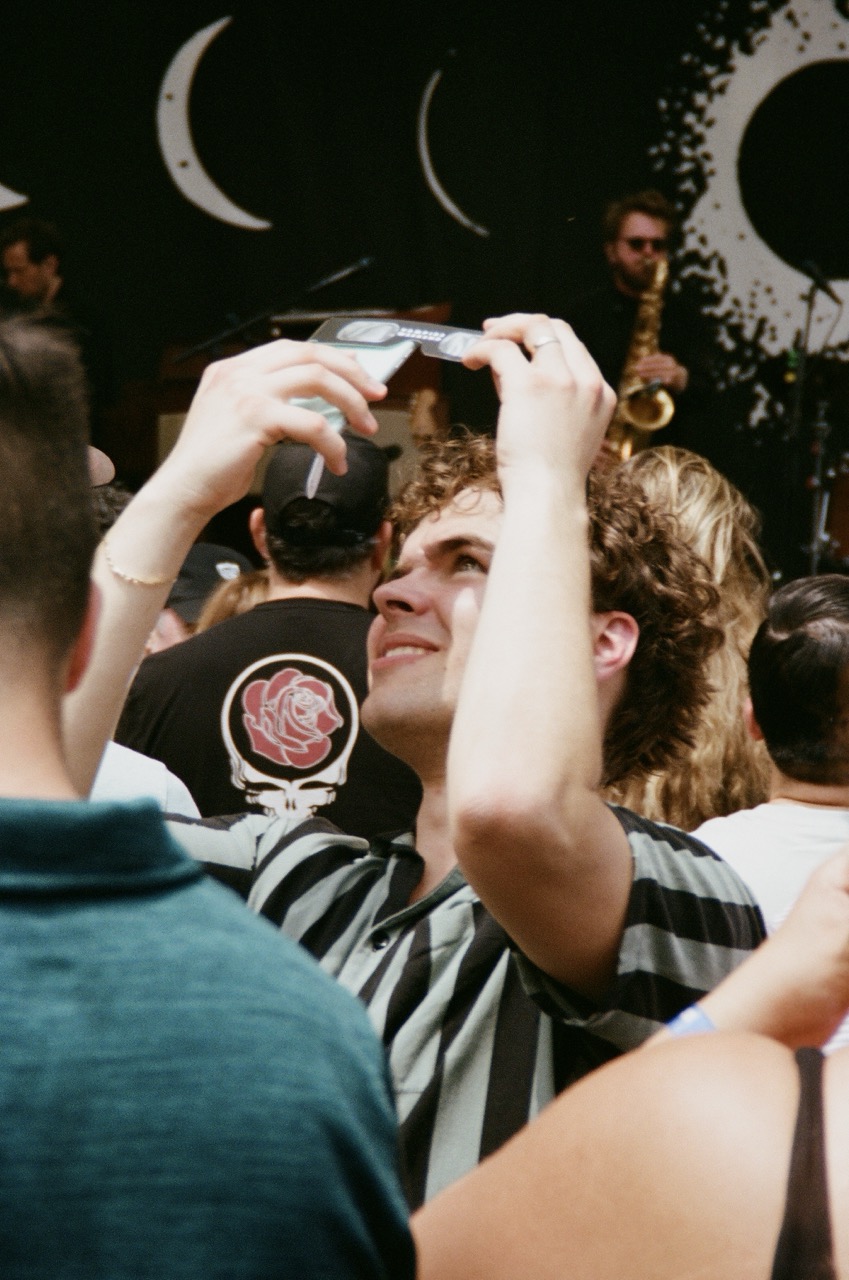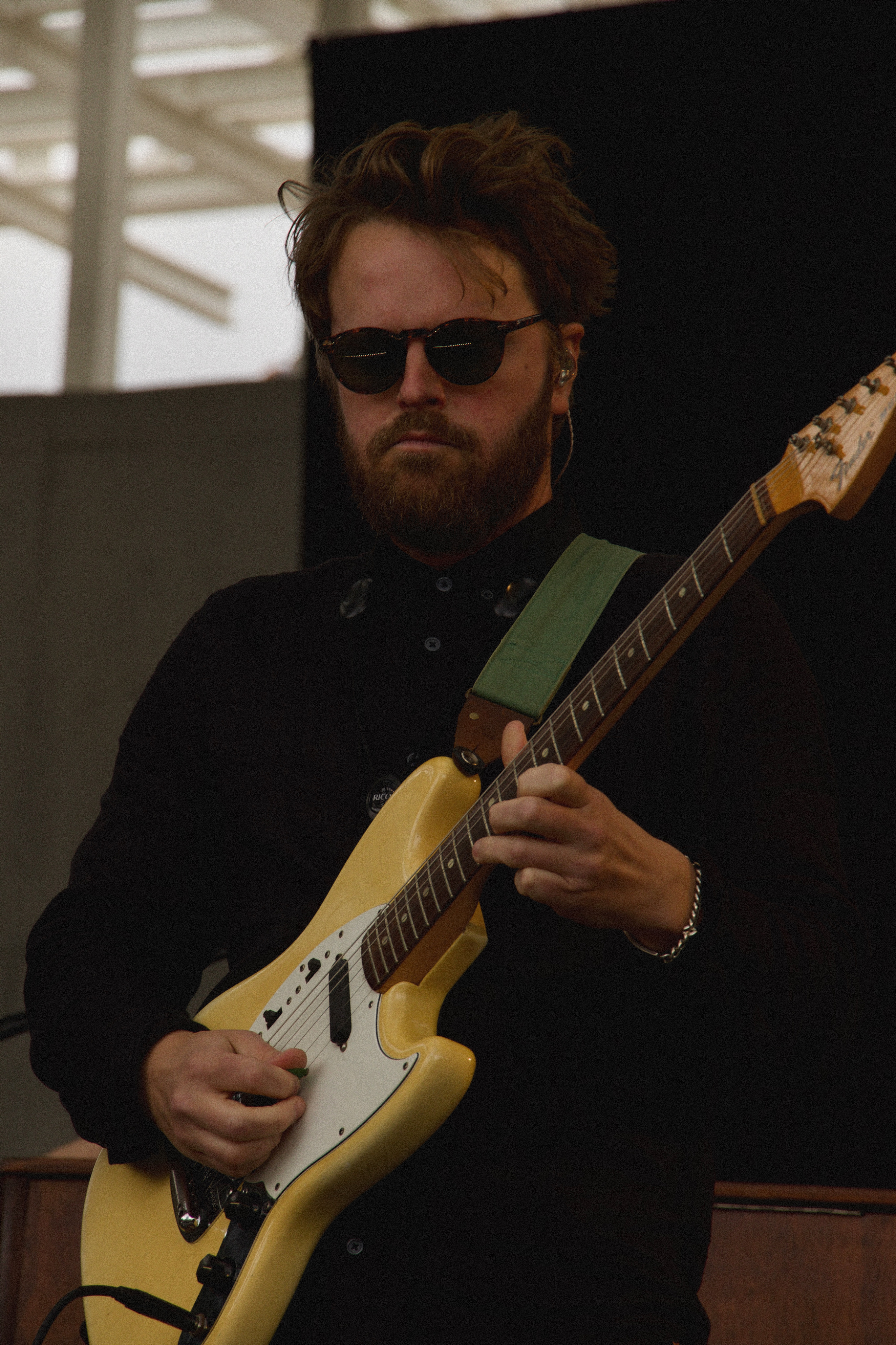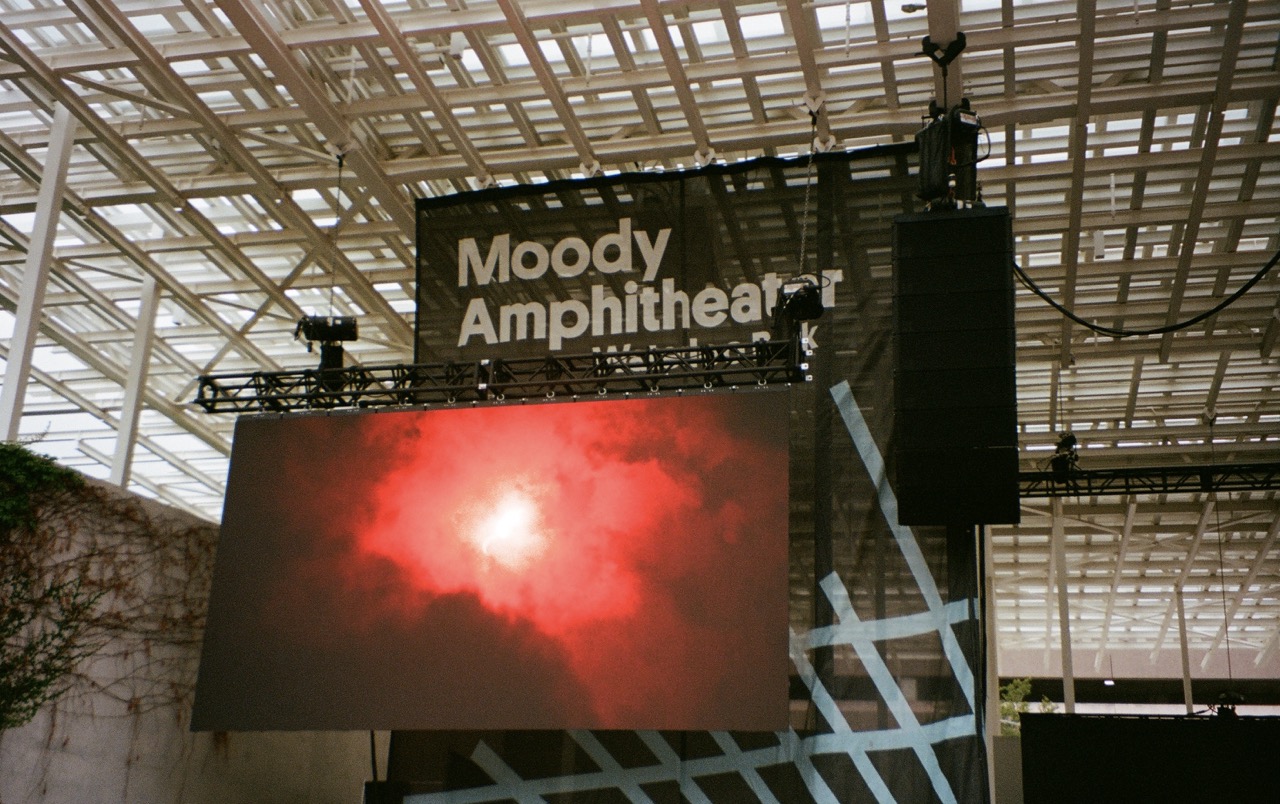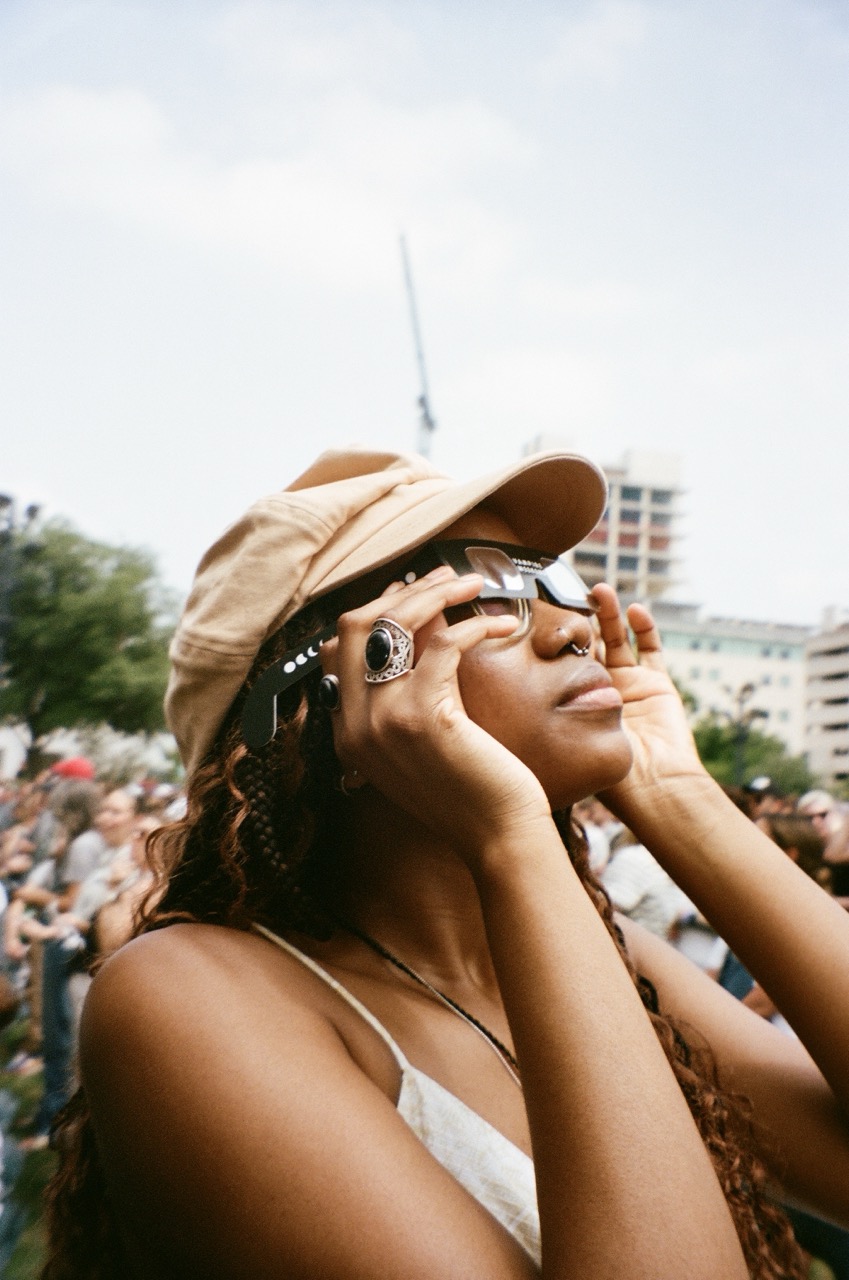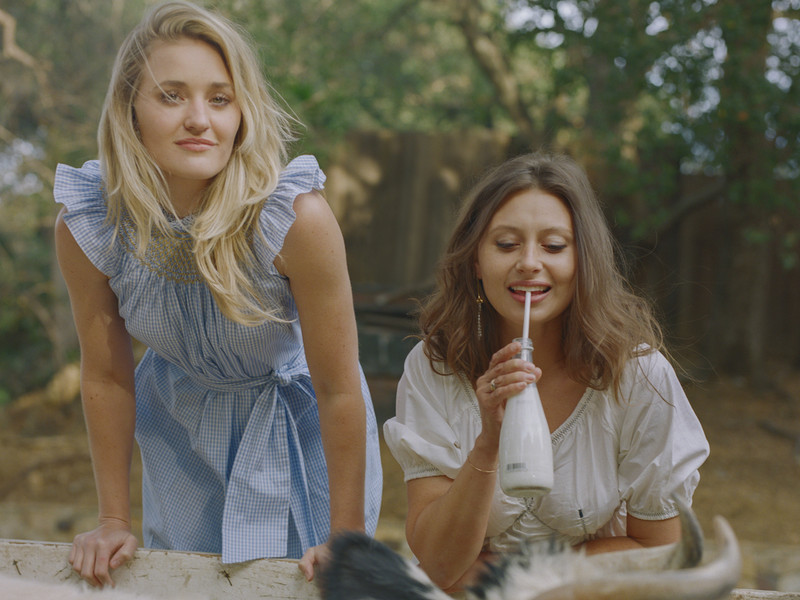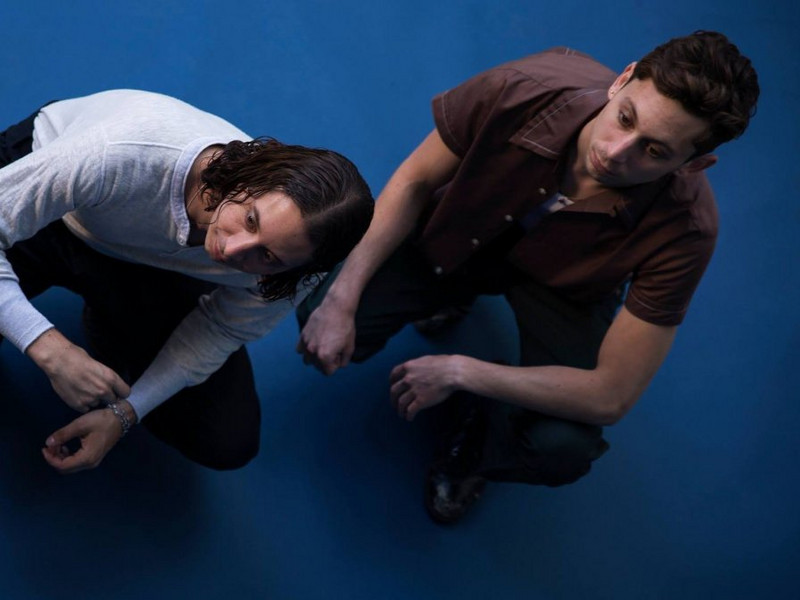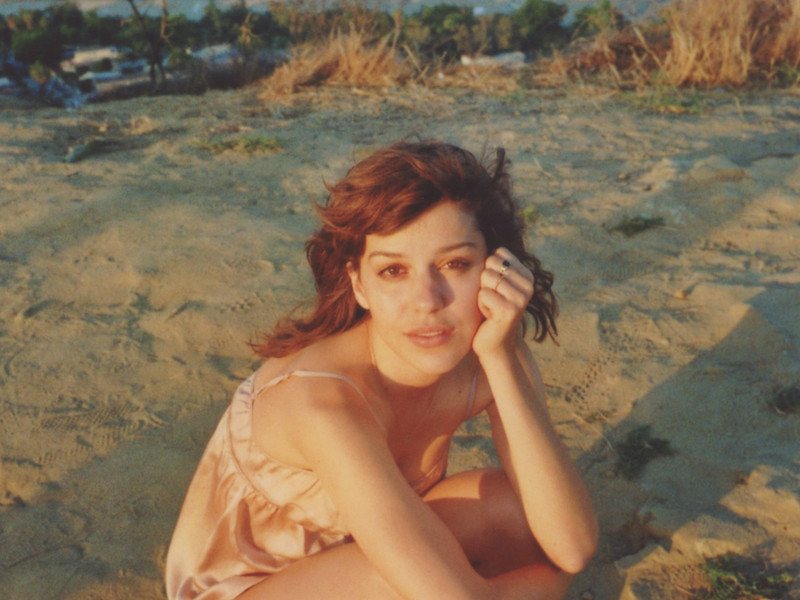Heaven: Justine Skye
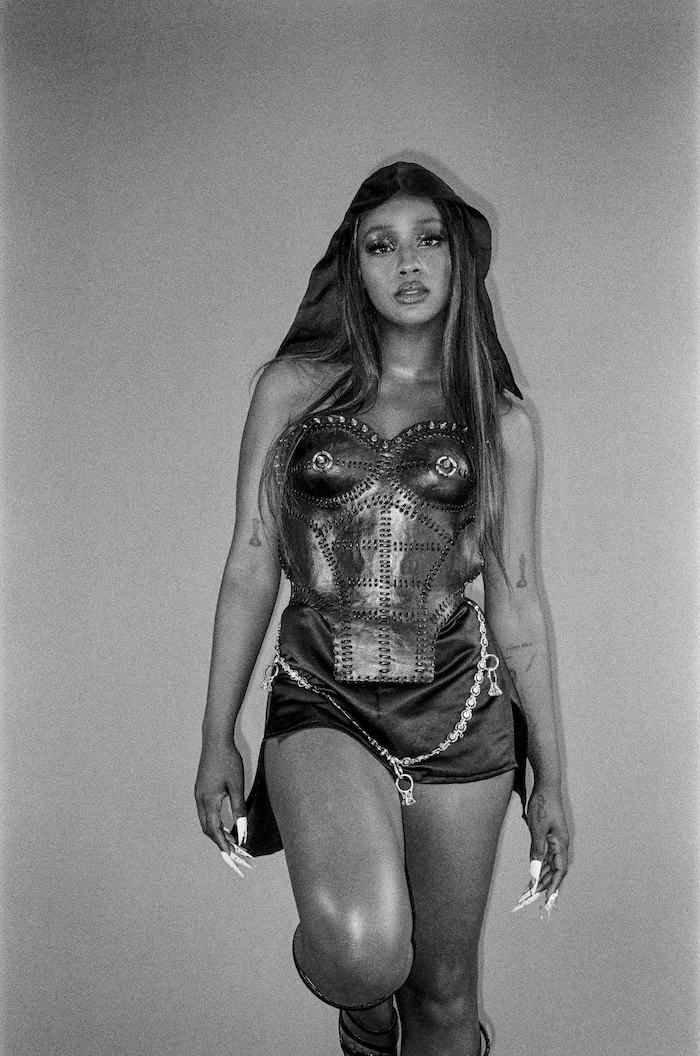
ANNA ZANES — Congratulations on the album.
JUSTINE SKYE — Thank you.
AZ — How have things been since it came out?
JS — It's been only four or five days. I’ve already got six million streams on Spotify, and it just keeps going up. It's really exciting to put out a project that's being so well-received. I'm independent, so it's a slow grow, but it's really great to finally share this project with the world and have something really good quality that’s mine to refer to when people say, ‘Have you heard of Justine Skye?’
AZ — And on top of that, being independent now, you’ve put more of yourself into it than ever before.
JS — Absolutely. This whole process has been very personal and purely authentic. I was the dominant writer on this project, but I had the help of some amazing people — my team, Justin Timberlake, all the writers who lended a hand, and of course, Timbaland, who produced it. He really took a chance on me wanting to create this whole project. There was no ‘science project,’ which was how it felt before. It's the first time that I feel like an actual artist, where I get the chance to sit down and really think about what it is that I want to do.
AZ — The sense of production being a ‘science project’—do you attribute that shift to working outside of a larger label? Do you feel like you’ve transitioned from a focus on marketing to the music itself? It’s incredible, you don't really see people making that move very often. It’s more so the reverse—the small guys eventually getting signed.
JS — Yes! That's the biggest thing. People knew my name or knew my face, but they didn't know the music. And so now it's like, here's my music.
AZ — Were you nervous — especially given how personal this project was — about how it might be received, or even understood?
JS — No, I wasn't nervous at all. I feel like I'm at a point in my life now, especially at an age now, where I don't have any restrictions. I don't have anything limiting me. When I first got signed, I was 17 and at that point in time, it was like, ‘You're too young to talk about these things, or you're too young to feel this way.’ Whereas today, a 17-year-old can write whatever the hell they want.
AZ — When you release a project how do you deal with comments? Do you read them?
JS — Absolutely. I think it's kind of bizarre to a certain extent when they say, ‘Don't look.’ I have to! I absolutely have to. That's your main source of interacting with your supporters, with your listeners, with your fans — that's how you communicate with them. You just have to sift through any negativity and find the people who are on your team.
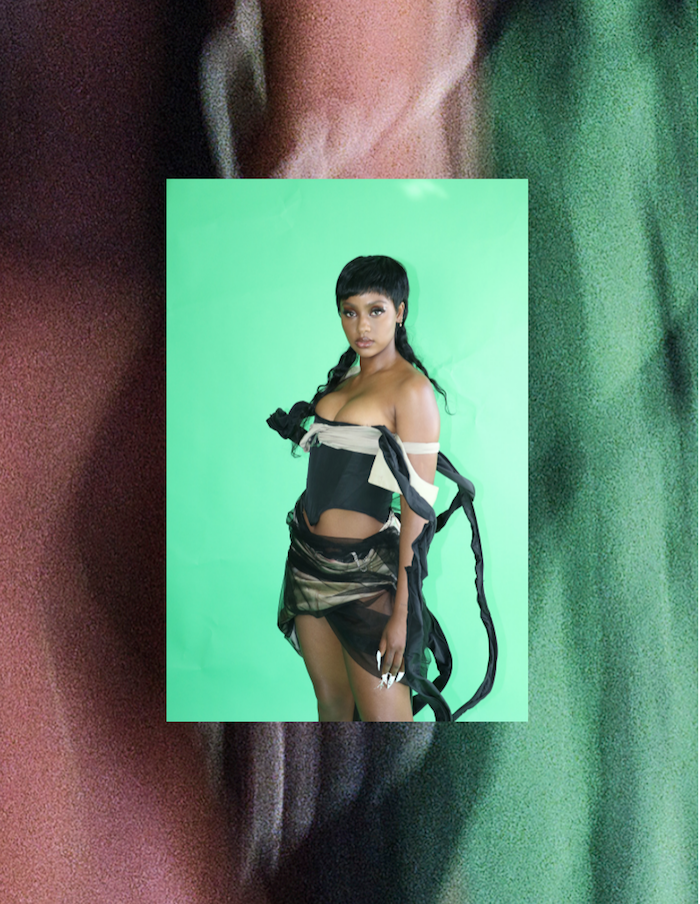
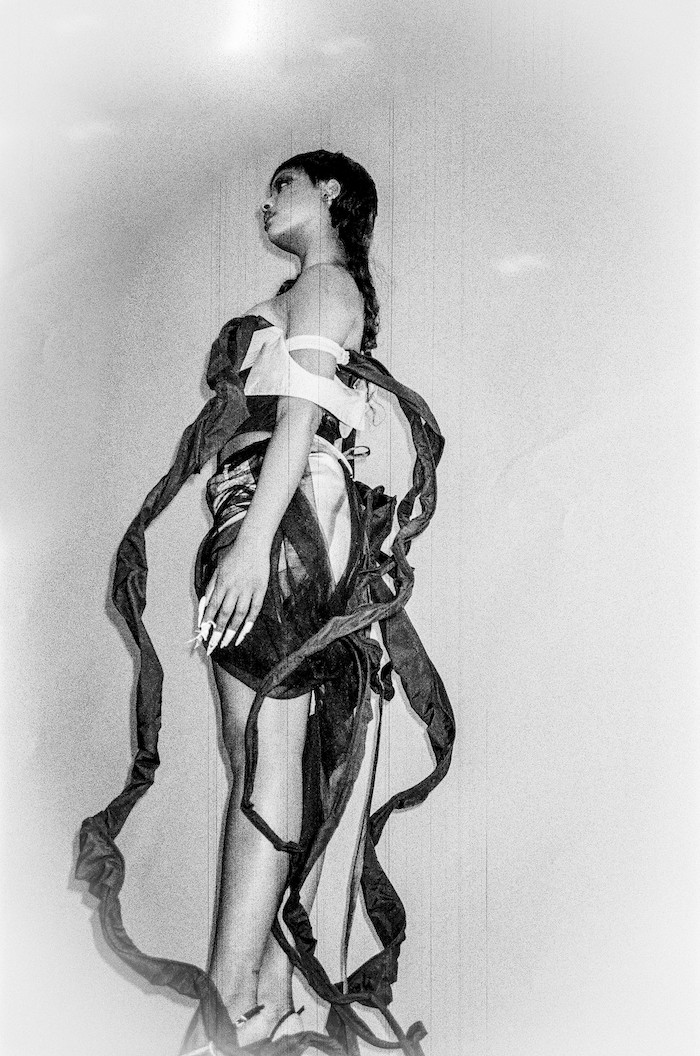
AZ — That makes sense, especially coming from someone who had their come-up in the age of Tumblr. I interview a lot of artists, and I hear a lot less sensitivity on the topic of comments and reviews from those who fall under the ‘post-internet’ umbrella, like yourself.
JS — For me personally, when I was on Tumblr, I obviously was just a girl — I was a girl on Tumblr. I didn't really consider myself Justine Skye. I was just literally a normal Tumblr girl who happened to have more followers than the average Tumblr user. There was no censorship of anything that I did. It was simply, ‘This is what I think. This is how I feel. This is what I'm talking about.’ But when I got signed and when I got more into the industry, and had to undergo media training, I realized, ‘Oh, I have to be proper. The things that I say can affect my life and career.’ I guess when I started out I had some fear that I had to be this person that I didn't know — not that anyone specifically told me to be that person — but I thought, ‘Well, I want to be great, so I have to censor everything. I have to listen, I have to do this.’
AZ — It's crazy. I'm your age, and I remember the time when Tumblr was essentially our diary. But when Instagram and social media started building up, the presence and role of influencers changed. It’s a whole different game than Tumblr fame.
JS — There was no real ‘influence.’ There kind of was, but they were homegrown New York kids, representing lifestyles — no one was getting paid to do anything.
AZ — The incentive was never branding or brand representation.
JS — Yes, and now that all of those things are on the line and there are people whose jobs are to be an actual influencer, we're in a strange place. I don't think it's bad and I don't think it's the best, but where we’re at now, we have to censor and limit a lot of things that hinder authentic art.
AZ — It seems like you're someone who has, throughout your career, done a pretty good job of speaking up when needed.
JS — I'm not an activist and I would never ever think that I am. But I am a human, so if I feel like something is wrong then I share my opinion, and you can either listen to it or not. I'm not asking anyone to listen to it. I'm just being human.
AZ — Why do you feel that it's important to detach from the label of activist? Do you feel as though people are more open to hearing you under that guise?
JS — Yeah, and I'm not doing all the research in the world — I'm really not. This is why I make sure that I'm not just recycling things without knowing much about it.
AZ — In terms of writing, do you feel that all of your work comes from a place of personal experience?
JS — More times than not, yes. It comes from experience, or at least a feeling that I know. Maybe I didn't actually go through it, but I know someone who has, or I know what it feels like. It's like writing a movie, it's based on a true story, but not everything is true.
AZ — What do you have to say about the idea that all good art comes from pain?
JS — Weirdly I was thinking about that today! I was watching the Olivia Rodrigo concert, which was amazing — the way they packed it all together, named the album, built the story around all of it. I think pain is something that we all relate to. And music is something we look to when we’re sad, or need to express ourselves, which is why I'm so grateful to be someone who makes music. But sometimes, especially nowadays, I feel like it can get a little bit too depressing. I wish that there was a way for it to be cool to not be so sad. But I think because expressing one’s feelings is something we’ve shoved into a corner for so long, people are drawn to sad songs — it's a way for them to say all the things they want to say, but don't. If you're feeling a certain way in a relationship and you don't know how to say it to someone, you can send them a song like, ‘This is how I feel.’
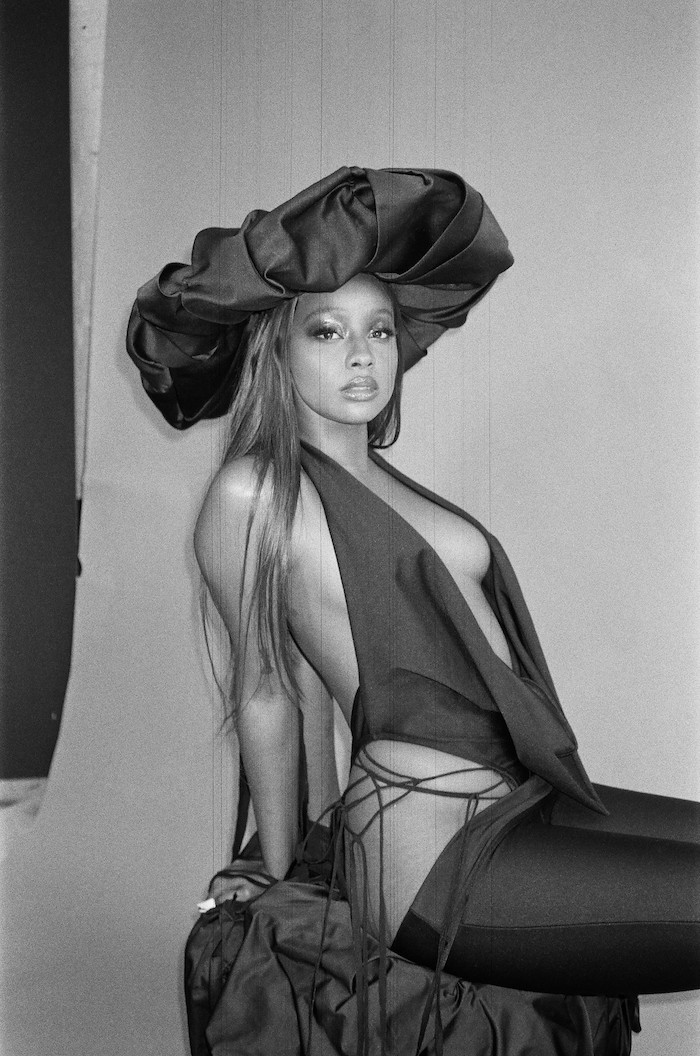
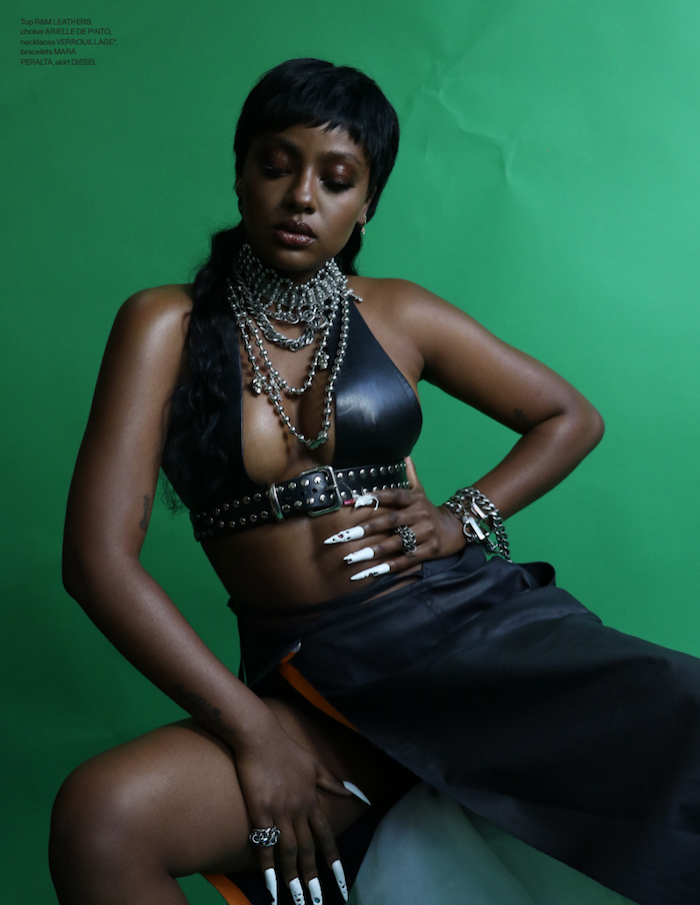
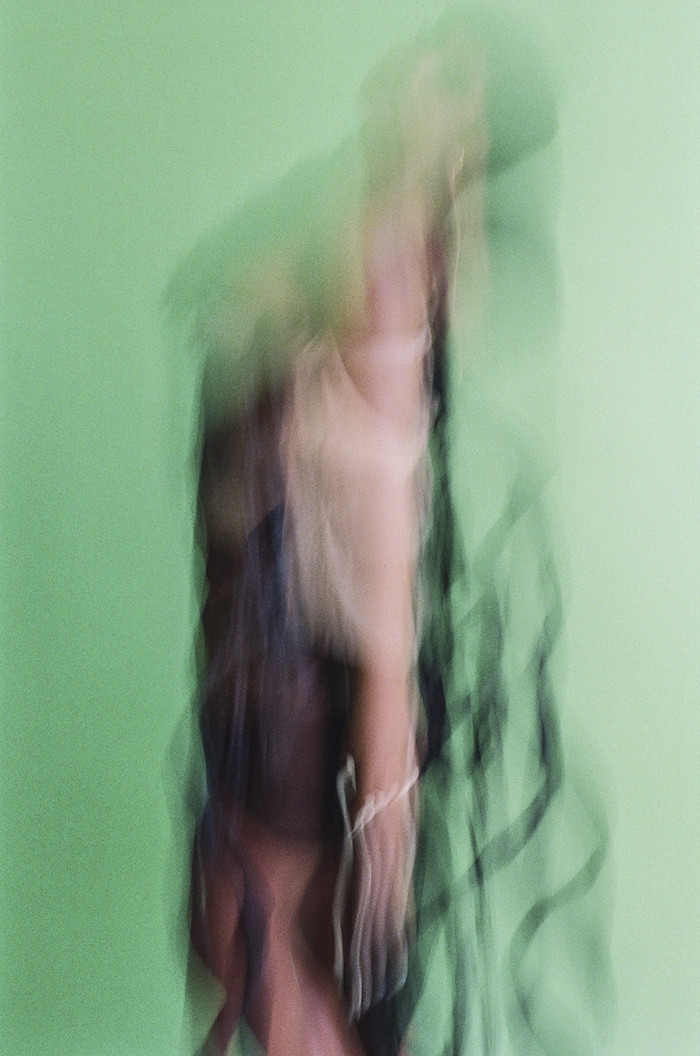
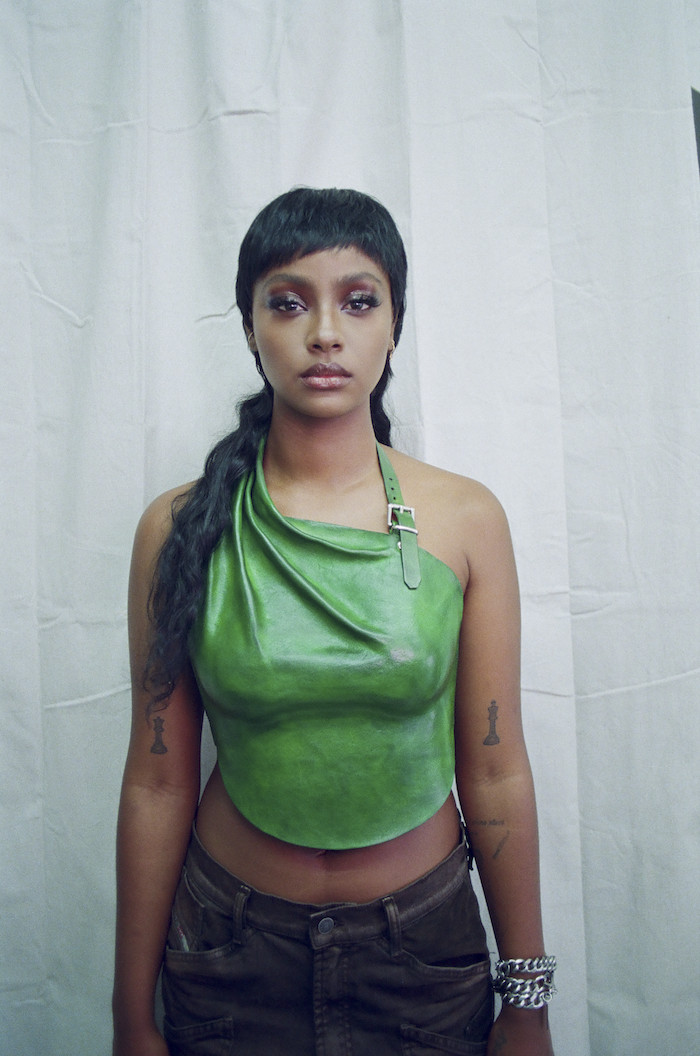
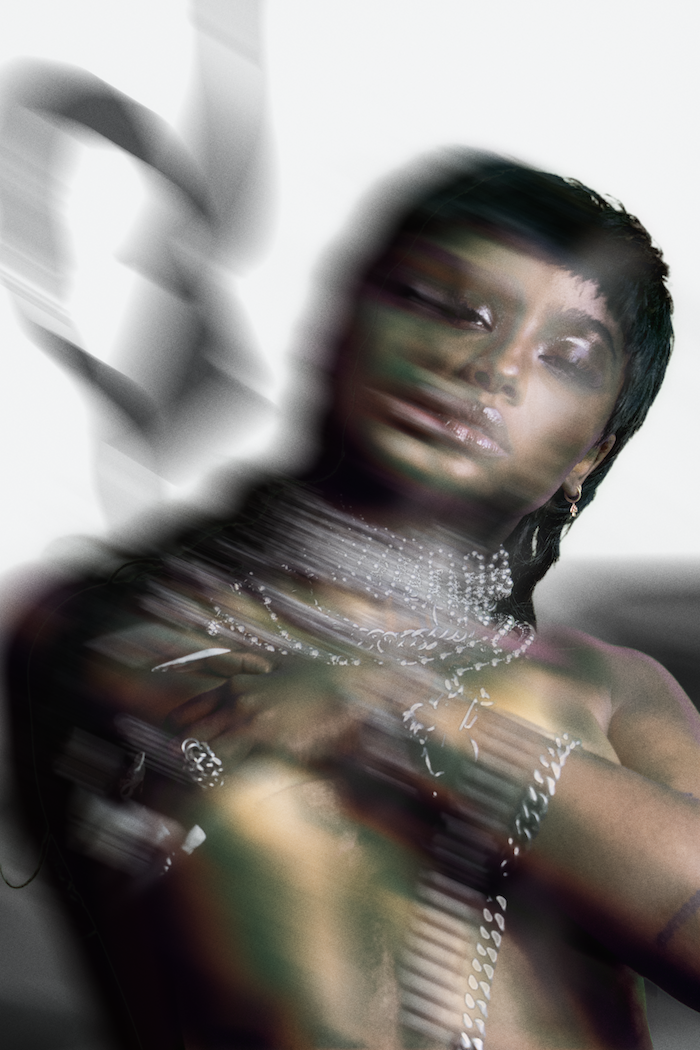
AZ — It can be a powerful, but also passive way of communicating. And like any trend, whether it's in fashion, art, or music, it’s going to be cyclical in nature. Look back at the 2010s — that era of music was all about getting fucked up and partying, only to be followed by sad boys. It’s not unlike the shift from the ‘80s to the ‘90s.
JS — There are definitely phases. I hope that we can get back into feel-good music eventually. Obviously we've been indoors for a year or so—which is why I ended my album with ‘Mmm Mmm.’ Since it's been out, and we’ve been out, hearing it at a party on big speakers, making people dance — that’s been the best feeling.
AZ — As a successful woman working within any medium, it seems like celebrity and influencer culture will eventually catch up with you. How do you actively approach the pressure of that? How do you hold onto your craft in the midst of it?
JS — It’s all ultimately up to you as a person. If you have a passion and you continue that passion, then there should be nothing that gets in the way. Music is the root of who I am, but I'm also a Renaissance woman, as well. At the end of the day, Justine Skye is an artist, she's a brand, she’s a businesswoman.
AZ — How do you balance your use of social media when it comes to your professional creative work and mental health?
JS — It’s finding the balance between sharing enough, but not too much. At the end of the day, this is the life you chose. This is the career path you chose. If I do share anything that's extremely personal or deep, it's because I feel alone in those times, and there may be someone out there who also feels alone. Whenever I see someone that I think is super cool sharing a moment like that, it’s shocking. And then I see all the comments. You don't know what people are going through.
AZ — It's hopeful for people, or at least in my personal experience, it's been hopeful to see someone I respect going through shit that I’ve gone or will go through, and still succeeding.
JS — It's not easy to share so much of yourself, because then it's no longer yours and you’re on stage for speculation. So, it's definitely something you have to think about before you do. Once you, even if it's like, ‘I don't like mustard.’ Now, the world knows you don't like mustard.
AZ — What has it been like working with Timbaland and Justin Timberlake?
JS — Oh, it's been so cool. You grew up listening to someone and now you know them, and you're working with them, and you've created this body of work with them. It's insane. And for them to just be so involved in every aspect of it — and even Justin just giving advice from the beginning of it, to then being like, ‘Hey, the only thing missing on your album is me,’ is insane.
AZ — That's incredible. What have you learned from each of them that is going to be really useful for you going forward?
JS — Man, I mean… I've learned a lot. Even just technical things, like Justin will help out in the studio, just making sure that I make the song sound bigger, stacking things or changing certain words because the sound is better. And just the encouragement from both of them. I've been in this industry for a little while now, and to hear people who have been in it even longer, and have had extreme success in it — it definitely boosted my confidence and helped a lot with certain decisions. What made me feel so great about this project is that it was created by people who were extremely passionate and who actually believed in me.
AZ — They saw what you were doing and wanted to be a part of it, rather than seeing someone they could shape and mold into their ideals, which is what sounds like has happened in the past, and what I've heard from many young women in the industry.
JS — Trust me. That's exactly how it feels.
